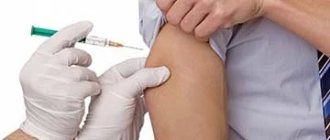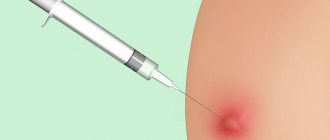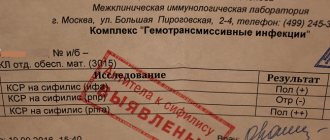What is immunoglobulin IGM and IGG
Antibodies are proteins that are produced by the immune system in response to exposure to coronavirus infection. They do not appear at the same time. After contact with Covid, the production of immunoglobulin M begins on day 6-7. It is necessary for the inactivation of SARS-CoV-2. Its presence in the patient’s body indicates that the disease is in an acute stage.
A different protein is required for a long-lasting immune response and reducing the risk of recurrent disease. It is called IGG and begins to appear 21-28 days after the illness. Its amount depends on the individual characteristics of the organism. If there are enough of them, the person will be able to cope with it if they come into contact with the coronavirus infection again. With a weak immune response, the risk of re-infection remains.
There is the concept of total antibodies - it means the total amount of proteins. A positive test in this case indicates previous contact with Covid, but does not indicate at what stage the disease is.
Cytomegalovirus in children
Even during fetal development, cytomegalovirus in children can provoke birth defects and health problems. Therefore, tests for IgG antibodies to cytomegalovirus and for the detection of DNA to the virus are included in the list of tests for TORCH infections (herpes, toxoplasma, rubella and CMV), which are necessary for all women during pregnancy or when planning it.
If CMV infection occurs in the early stages of pregnancy, the risk of miscarriage is very high. In cases where the infection enters the body in late pregnancy, cytomegalovirus in children may not manifest itself for a long time. The child remains a carrier of the virus and faces periodic exacerbations due to decreased immunity. IgG antibodies to cytomegalovirus are detected in his blood and the IgG cytomegalovirus test is positive. IgG and IgM antibodies to cytomegalovirus are found in 10-15% of adolescents.
What are the antibody tests?
The laboratories in St. Petersburg use several variants of test systems. In total there are about 150 varieties. They are qualitative, that is, identifying the presence of antibodies in the blood serum, and quantitative. They show their number per unit volume of biomaterial. In addition, systems can be focused on different types of proteins:
- The spike S protein provides the coronavirus with the ability to penetrate the body's cells. The presence of an antigen to it indicates the presence of protection against infection. The study is carried out 7-14 days after vaccination. When using Russian vaccines, a different type of test may be necessary. Test for IgG to the RBD domain of the S1/S2 protein;
- Natural immunity after COVID-19 is tested using IgG to the nucleocapsid N protein. It is not used for post-vaccination response;
- The acute phase is indicated by IgM.
There is also a test for cavidity, that is, the strength of binding of antigens and antibodies. It is used to determine the effectiveness of developed immunity.
In what cases is a study prescribed?
• to assess the presence and level of specific antibodies to SARS-CoV-2 as a result of past infection (including asymptomatic); shows the current level of protection against re-infection with coronavirus • An auxiliary study for the diagnosis of COVID-19, in addition to PCR tests (IgG tests should be carried out after 2 weeks from the onset of the disease); • assessment of the immune response to vaccination (with vaccine preparations using S-protein, including Gam-COVID-Vac - Sputnik V, Kovivak).
What exactly is determined during the study? IgG are specific markers of protective immunity. The study is automated, performed by ELISA using Vector-Best test systems, Russia.
What do the test results mean?
The issuance format is quantitative, in the form of the exact amount of virus-neutralizing antibodies to the surface protein of coronavirus (S protein) in 1 ml of blood serum (numeric value)
The resulting figure must be compared with reference values: Negative result - less than 10 bau/ml Positive result - more than 10 bau/ml
According to the manufacturer, all samples with a specific IgG concentration of 150 BAU/ml or higher have high virus-neutralizing activity. At a concentration of 80-140 BAU/ml, the probability of having high virus-neutralizing activity of the serum is 50%.
The advantage of our test is that the result will be given in international units recommended by WHO (BAU/ml - binding antibody units in 1 ml)
Accuracy of the study
To compare the results of studies done at different times, the test must be carried out using the same method. Some studies focus on 400 units, while others focus on 2. Therefore, reference values are always indicated in the decoding.
The accuracy of the systems used is of great importance. False negative results increase the risk of spreading the epidemic, and false positive results lead to unnecessary isolation, disruption of normal lifestyle and inadequate treatment.
Extensive research into the quality of test systems was carried out in Europe, Asia and the USA. It showed that existing types of testing detect antibodies in 30% of patients in the first week after illness. In the second week this figure increases to 70%, after 21 to 90%. False positive results were found in only two percent of cases.
What is the difference between a quantitative and a semi-quantitative test?
— Quantitative analysis shows the concentration of antibodies, expressed in certain units in the volume of biological material (for example, units/ml) — Semi-quantitative analysis for antibodies. The result is expressed in CP. *Positivity rate (PR) is the ratio of the optical density of a patient's sample to the threshold value. CP - positivity coefficient, is a universal indicator used in enzyme immunoassays. The “positivity rate” shows how many times the level of antibodies in the sample exceeds the threshold level for their recognition.
How to interpret the results
It is quite difficult to understand what the numbers indicated in the analysis mean without a specialist. Moreover, different laboratories use different counting principles. The Ministry of Health memo specifies the following reference values:
- If the number of IGGs is greater than or equal to 10, and IGM is less than 2, an immune response is formed;
- IGG <10, IGM <1 - the person has not been in contact with COVID-19;
- A questionable result is considered to be immunoglobulin M 1-2, with immunoglobulin G greater than 10, and class protein M> 2, with protein G> 10.
When the test for cytomegalovirus IgG, IgM and DNA is positive: transcript
Testing for IgG, IgM antibodies to cytomegalovirus and its DNA in adults is the most reliable way to identify the infection and start treatment on time.
It is especially important to determine infection in pregnant women. If the test result for cytomegalovirus IgG is positive, the risk of intrauterine infection cannot be excluded. Its likelihood is higher if IgG antibodies to cytomegalovirus are detected together with IgM, and also if the IgG concentration exceeds the reference values, which range from 0 to 6 U/ml.
If the cytomegalovirus IgG test result is positive, contact with the virus is confirmed. If the test for cytomegalovirus IgG is positive together with IgM, then we can think about an acute period of infection. If the test for cytomegalovirus IgG is positive, and IgM is positive in a titer of 1:200 or more, the likelihood of a recent primary infection is very high.
A negative result for both antibodies allows one to exclude infection or suspect a seronegative version of it, and may also indicate severe immune suppression.
How many antibodies are needed after vaccination?
There are no reliable studies on this topic yet. None of the countries provided review papers with a sufficient level of evidence.
Too little time has passed since the development of vaccines to allow regulation of the evaluation of results. The situation is complicated by the emergence of a new strain of coronavirus, which is called “Indian” or “delta”. There is not yet enough information about what kind of immune response can provide protection against this type of disease.
Cytomegalovirus: symptoms in adults
When infected, the incubation period can range from 20 to 60 days.
Adults who test positive for cytomegalovirus IgG, IgM, and DNA may exhibit the following symptoms: • Signs of peripheral nerve damage;
• Manifestations similar to ARVI;
• Stomach and intestinal upset;
• Inflammation of the joints - with inflammation of unknown origin, testing for cytomegalovirus IgG, IgM and DNA is positive;
• Chronic fatigue, asthenia and vegetative-vascular dystonia;
• Skin rash;
• Damage to blood vessels of the eyes, brain;
• Signs of damage to the liver, kidneys, bronchi, adrenal glands, etc.
Where to get tested
An antibody test for Covid is possible in most institutions in St. Petersburg. To make it easier to choose a clinic within walking distance, just use our portal. To do this, you need to go to the website, study information about the city’s medical centers and select any one. After this, you need to call the support service operators by phone. They will book a test pass, tell you what you need to take with you, and warn you whether you need to prepare for the test. The portal was created in the interests of patients, so assistance in selecting medical centers is free.
What else is indicated on the service? You can see it here:
- Antibody test cost;
- Availability of discounts and benefits;
- Location and directions to the clinics;
- Number of coupons;
- Opening hours of institutions;
- Provide an accessible environment for people with limited mobility;
- Payment Methods.
We work only with trusted laboratories that use WHO-recognized test systems.
This article is posted for educational purposes only and does not constitute scientific material or professional medical advice.
Literature on the topic:
- Deeks JJ, Dinnes J, Takwoingi Y, Davenport C, Spijker R, Taylor-Phillips S, Adriano A, Beese S, Dretzke J, Ferrante di Ruffano L, Harris IM, Price MJ, Dittrich S, Emperador D, Hooft L, Leeflang MMG, Van den Bruel A. Antibody tests for identification of current and past infection with SARS-CoV-2. Cochrane Database of Systematic Reviews 2021, Issue 6. Art. No.: CD013652. DOI: 10.1002/14651858.CD013652.
- Zimmer C, Corum J, Wee SL: coronavirus vaccine tracker. New Your Times. Updated January 7, 2021 Accessed January 8, 2021
- Chen A: A single-dose vaccine appears to protect against COVID-19. So why are we giving two? Common Health, December 20, 2020. Accessed January 8, 2021.
- Vaccines and Related Biological Products Advisory Committee: FDA Briefing Document: Moderna COVID-19 Vaccine. Vaccines and Related Biological Products Advisory Committee Meeting, December 17, 2020. Accessed January 8, 2021.








